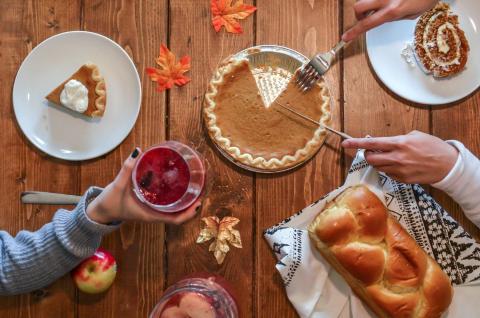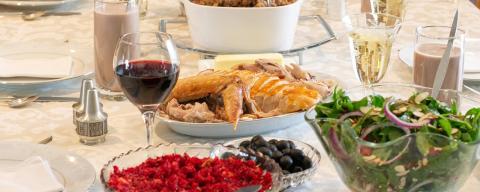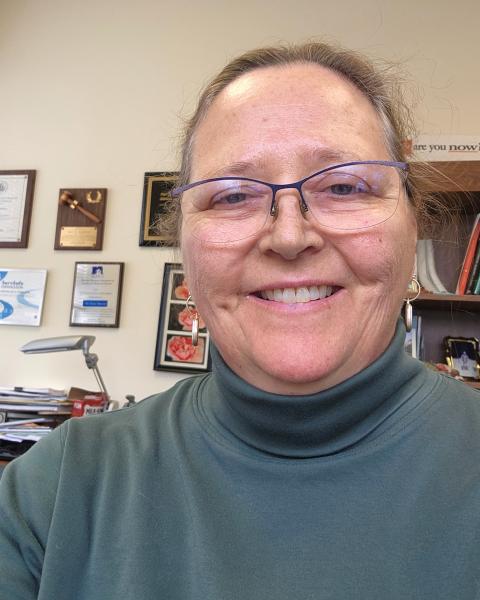Food Safety Reminders for the Holiday Season
For many, the start of the holiday season begins with Thanksgiving — a time for reflecting on what we are thankful for and gathering with friends and families for a good meal. My family will have 85 people gathering in a rented space in Maine for a Thanksgiving celebration and feast. As a food safety advocate and educator, safe food handling quickly comes to my attention when cooking for that many people. No one wants to make their family or friends sick from the food that is served.
Whether you cook for yourself, a small gathering of families or friends or a large crowd, it all begins with safe food handling. Safe steps in food handling, thawing, cooking and storage are essential in preventing foodborne illness. You can’t see, smell or taste harmful bacteria that may cause illness. When people think of food safety, meat and poultry are usually the first items that come to mind. I encourage you to think beyond turkey and other meats to tofurkey and, yes, baked goods such as pies, breads and other desserts.
Thawing turkey under safe conditions and cooking the turkey to an internal temperature of 165°F is important in keeping it safe to serve. For optimum safety, it is not recommended to stuff and roast a turkey. If you choose to cook the stuffing in the turkey, place the stuffing lightly in the cavity right before cooking. It is essential to use a food thermometer to confirm the center of the stuffing also reaches a safe minimum internal temperature of 165°F.

If you are eating a meat-free meal that includes tofurkey, the minimum temperature to cook the tofurkey is 165°F. You need to keep in mind that tofu is a protein source and subject to bacterial growth. Safe handling will go a long way to making your meal safe.
Now, you may be wondering what food safety and baked goods have in common. The concerns are not just raw eggs in dough, it also the flour. Flour is a raw ingredient. Wheat comes from the farm, and it’s minimally processed and then packaged for use. Because it’s raw, flour may contain harmful germs, like E. coli and Salmonella, that cause food poisoning and foodborne illness. Dry heating flour in the oven or microwave prior to using will not suffice in killing E. coli and Salmonella.
Baking Desserts and Breads
Baking desserts and breads until done, not overdone, will ensure your product is safe and delicious to consume. When the oven timer indicates the product is done, take an internal temperature at the center of the product. Most baked goods have an end cooking temperature. For example, custard, flan and fruit pies should be cooked to 170° - 175°F; meat stuffed breads to 165°F and yeast bread and rolls to 190° - 210°F. More information on safe baking temperatures can be found on the Home Baking Association website.
The bottom line for food safety: Wash your hands with soap and water after handling raw flour and protein sources to prevent flour and juices from spreading to other foods. Remember to wash bowls, utensils, countertops and other surfaces that have touched raw flour and meats and poultry with hot, soapy water. Cook food to recommended temperatures prior to eating.
Food Safety Resources
The following resources are available to help you plan a wonderful holiday meal!
- If you have questions about meat, poultry or egg products, call the USDA Meat and Poultry Hotline toll free at 1-888-MPHotline (1-888-674-6854). The hotline is open Monday – Friday from 10 a.m. – 6 p.m. ET and from 8 a.m. – 2 p.m. ET Thanksgiving Day.
- If you are wondering how long it will take to thaw and cook your turkey safely, visit the USDA Food Safety & Inspection Service’s Turkey Calculator website. This website provides many resources on thawing, cooking, cooling and storing foods.
- If you are looking for more information on baking, visit the Home Baking Association website.

